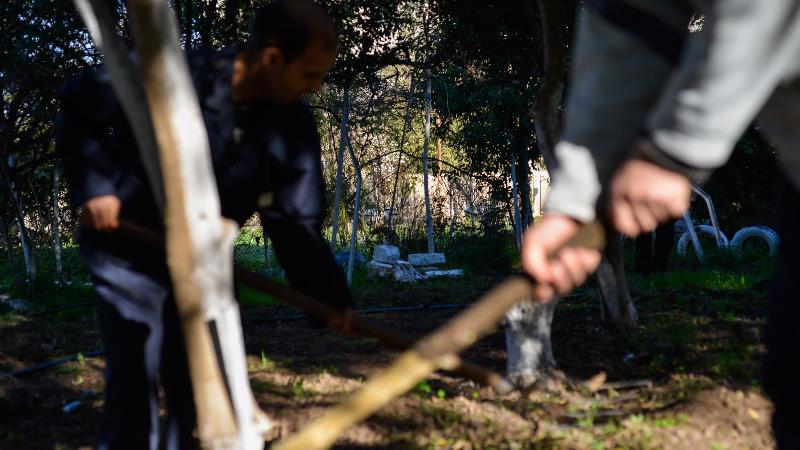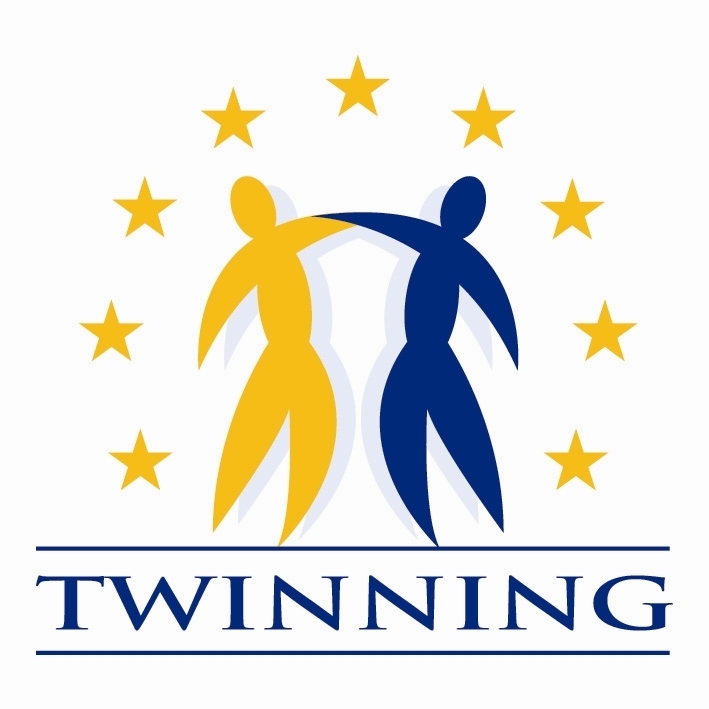In Blida, a rose garden supports the integration of disabled people into the world of work
For over 15 years now, the Blida Association for Assistance to Mental Patients (ABAMM) has been receiving and providing aid and assistance to mentally disabled people and their families by allowing them to work in greenhouses of roses installed on a plot of land made available by Frantz Fanon Hospital in Blida, 50 km from Algiers.
With support from the twinning, ABAMM is gearing up to experiment with a unique activity in Algiers in terms of the employability of people with disabilities: the Centre of Assistance through Experimental Work (CATEX).
The roses grown by patients used to be sold in a small kiosk located at the hospital entrance and the unsold roses were sometimes destroyed. The project team therefore came up with the idea of creating a profitable economic activity in a protected environment, to promote the professional integration of these people with disabilities.
The twinning experts and administrative officials drafted an experimental agreement for this purpose, using all the regulatory resources with the aim of making the creation of this future CATEX possible.
For the second stage, it was necessary to partner with a company in order to address the challenge. A business leader marketing essential oils immediately accepted the proposal. The hospital has now signed an agreement to make land available so that the new crops can start in an approved establishment. The dynamics have been launched and it is now important to continue to mobilise all actors, train them and inform them in order to continue this experiment.
“Damascus roses will soon be growing in these greenhouses and their petals will be used to produce rose essential oils. Fanon wanted to get mentally ill people out of hospital. For our part, we have managed to bring the business world into the hospital”, explains Dr. Jay-Rayon, resident twinning advisor on the French side.
A new approach to disability in Algeria
This institutional twinning financed by the European Union reached completion at the end of January 2019. It has provided technical assistance to the Algerian authorities for the development and implementation of mechanisms to integrate people with disabilities into the world of work.
Expertise France implemented this project on behalf of the French Ministry of Social Affairs, which made available the resident advisor of this twinning, Dr. Françoise Jay-Rayon.
This project has made it possible to define a new approach to the issue of disability in Algeria: it is now the person, their competences, their career plan and their life plan which are central to support policies, in line with the founding principles of the International Classification of Functioning, Disability and Health (ICF) of 2001.
A stronger legal framework
Furthermore, the twinning gave impetus to reflection from a legal point of view, as an overall strategy aiming at promoting the integration of people with disabilities into the world of work must be backed by a clear legal framework. For this component, priority was given to revising the text governing the National Council for Disabled Persons. The new text will lead to a decentralisation of decision-making via the creation of local representations. The decree governing this body is currently under study.
In a second stage, it will be the law on the protection and promotion of disabled persons, adopted in 2002, which will require an in-depth amendment. The future law will need to clearly prohibit any discrimination based on disability for everything relating to access to employment. “This revision is currently ongoing and should by finalised very soon”, reassures Ali Zerrougui Nabaoui, Director of Prevention and Workplace Integration of Disabled People at the Ministry for National Solidarity and Project Manager for the twinning on the Algerian side.

An intersectoral and multi-stakeholder approach
Finally, the twinning led to the conclusion that the issue of professional integration for people with disabilities should no longer be the responsibility of a single ministry, but should be based on an intersectoral approach, gathering all the stakeholders involved in the subject. The project in particular proposed to establish a partnership with associations – as shown by the example of CATEX.
This first international twinning operation for the Ministry of National Solidarity, Family Affairs and the Status of Women reached completion at the end of January 2019. For Ali Zerrougui Nabaoui, it would be wise to deepen cooperation with European Union countries in the context of a new project.
“We still need a certain expertise, in particular for the creation of the National Body for the Promotion and Integration of Persons with Disabilities. We could also benefit from European experience in adjusting workstations in companies. This activity requires real technical skills, as the means need to be adapted to the specific needs of each disabled person.”
Read the full article (in French) on the European Union website

© PICTURES: European Union

